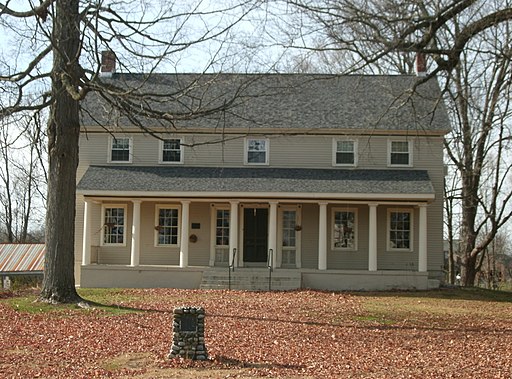 |
| Gansevoort Mansion Photo by Doug Kerr via Wikimedia Commons |
Not Pierre but Mardi is "Melville's 'Dutchiest' work"(393) according to Professor Kenney. More recent scholarship has challenged the reliability of Kenney's source Lawrence Gwyn Van Loon. Well, the proposed connection between a Dutch folk tale about "Joekie and the poolmaiden" and the role of Yillah in Mardi never seemed all that strong to begin with. Nonetheless, other Dutch elements and motifs doubtlessly inform Mardi and other prose works by Melville. Kenney points out that Dutch influences abound in Melville's poetry, too:
Life at Gansevoort is probably also described in one of Melville's poems, "A Dutch Christmas Up the Hudson in the Time of the Patroons," which depicts not the elaborate festivities to be expected of Van Rensselaers or Van Cortlandts, but the homely celebration of a farm family who, while decking their rooms with greens and preparing good food, encourage the servants to make merry amid their labors and extend a share in the cheer to farm animals and their less fortunate neighbors. Extra measures of oats and hay for the livestock and wreathing the horns of the cattle with holly suggest the continued practice by Dutch farmers of widespread North European folkways, while Santa Claus's gifts of a mince pie to "the one man in jail" and good things to the poor so proud that "pudding for an alms they would spurn from the door" recall the quiet, practical charities which made Melville's sisters Augusta and Fanny beloved in Gansevoort. Most quintessentially Dutch of all is the last line of the poem, "Happy harvest of the conscience on many Christmas Days." (395)The case, in summary:
Dutch influences in Melville's works, therefore, clearly include elements from HudsonProfessor Kenney aimed in this 1976 article to spur closer study of Melville's Dutch influences. Forty years later, a fresh look would still be welcome.
Valley folklore, basic attitudes toward language, rhetoric, and literary form, and values
fundamental to the Hudson Valley Dutch tradition as well as explicit references to Dutch subject matter. (399)

No comments:
Post a Comment